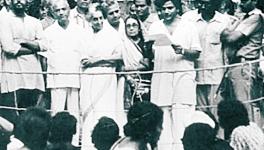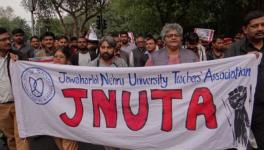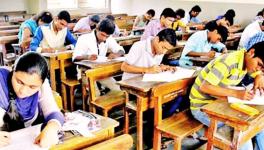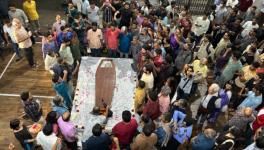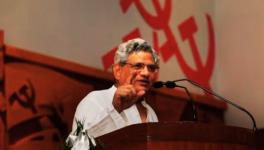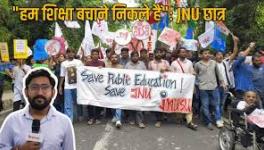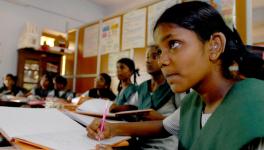JNU Teachers Allege Academic Erosion; Highlight ‘Arbitrary’ Policies for Recruitment and Promotions
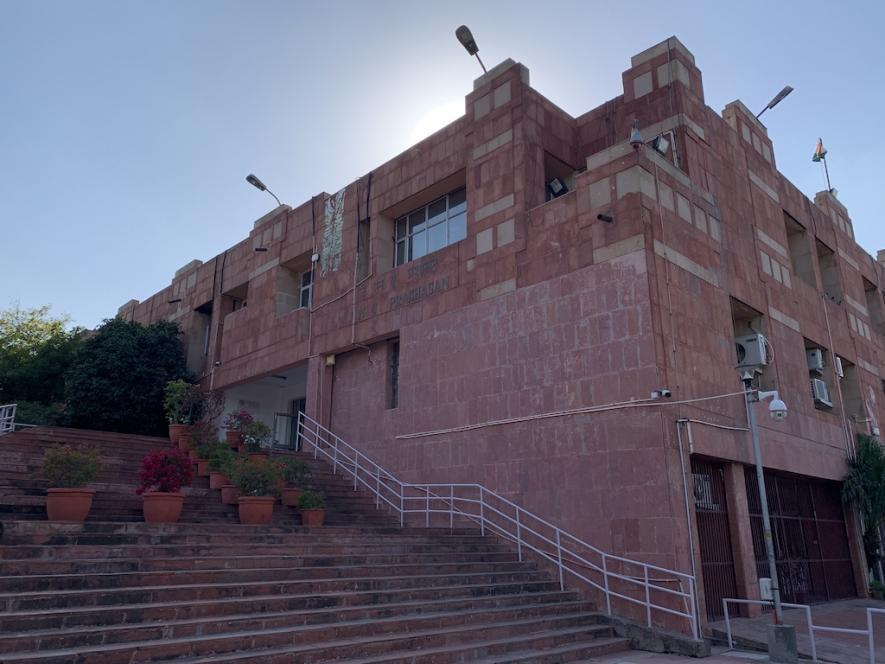
Delhi: The teachers of the prestigious Jawaharlal Nehru University (JNU) have alleged that the administration continues to apply a dictatorial approach in consultation with stakeholders and has ended up hurting research “beyond repair”. Addressing a press conference at the JNU Teachers’ Association (JNUTA) office inside the campus on Friday, the teachers said that the administration opted to stop promotions of dissenting teachers on the grounds of a flimsy chargesheet by Delhi Police even when the Delhi High Court stayed it.
D K Lobiyal, President of the JNU Teachers’ Association, said that selective promotions have been handed to the teachers who paid complete obeisance to the administration. “We are seeing that promotions have been denied to our colleagues, whereas some teachers have been given extensions as chairpersons and deans beyond the tenure of a vice-chancellor,” he said.
"Fourteen appointments of deans of different Schools of JNU have taken place since February 2022. Three of them involved the previous occupant of that office being reappointed to the same position, even for serving a third term. In another 10 cases, senior colleagues in their respective schools were bypassed, with the solitary exception being when the dean had to be appointed from outside the School concerned. In other words, rotation by order of seniority has not been followed in a single case," he added.
Surajit Mazumdar, a professor of economics at the Centre for Economic Studies and Planning, said that the situation is so bad that the chairpersons of different schools and centres do not know about the experts coming to interview the teachers for recruitment. He said, “The usual precedent remains that departments would prepare the list of experts and send it to the vice-chancellor, and she would choose certain names. However, we are seeing that experts are added to the list, and there is a complete disregard for the statutes of the university as well as the norms laid out by the University Grants Commission.”
Atul Sood, the former president of JNUTA, added that it appears that the administration has already approved the decisions, and the meetings of bodies like the Academic Council and the Executive Council are called to just report the items. “I was a member of the Executive Council, and it was strange that 27 items, which included the introduction of new courses, finished in half an hour. Former VC Jagadesh Mamidala used to call online meetings and would mute the mic if members wanted to express something. The tradition is going on with the current VC allowing select members to speak in the meetings. All universities have returned to pre-COVID norms for conducting physical meetings; whereas JNU remains the only university where such a practice is going on.
Moushumi Basu, who teaches at the Centre for International Politics, Organisation & Disarmament, said that the teachers have noticed a pattern where the National Testing Agency (NTA) is determining the academic calendar of the university. “We have seen that admissions to masters and PhD would be conducted through NTA. However, there is no compulsion to engage with NTA for entrance exams. We are seeing that semesters would end in a matter of three months. I think it’s cheating our students and nations that we are compelling [students] to take exams without proper studies.”
Another fallout of it remains the reduction in the number of girl students in the university. The teachers emphasised that the percentage of girl students has plunged from 51.4% in 2017-18 to 44.4% in 2021-22. Similarly, the share of research students has decreased from 62.2% in 2016-17 to 46% in 2021-22.
The JNUTA, in a press statement, said that the process of destruction of the University unleashed in 2016 has continued unabated, even after the change of the Vice Chancellor in February 2022. This destruction involves the erosion of the institutional and academic ethos of the University and the undermining of its role as a promoter of social equity – the hallmarks of the University which were integral to establishing it as a premier higher education institution.
Get the latest reports & analysis with people's perspective on Protests, movements & deep analytical videos, discussions of the current affairs in your Telegram app. Subscribe to NewsClick's Telegram channel & get Real-Time updates on stories, as they get published on our website.











